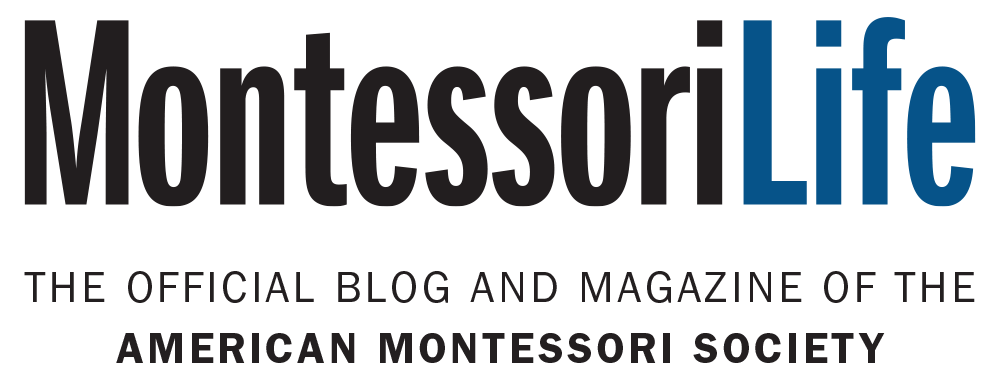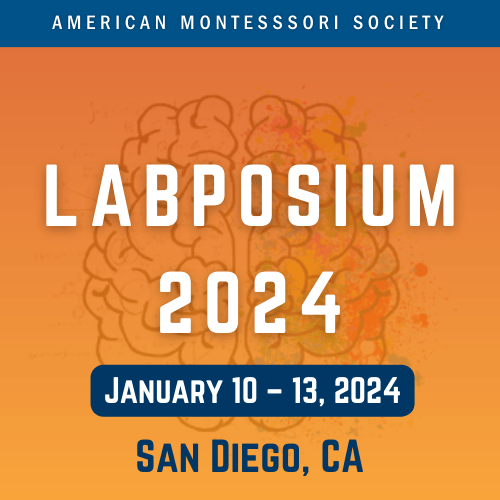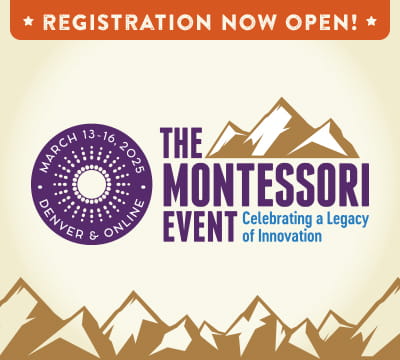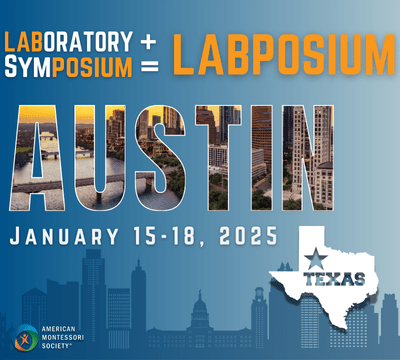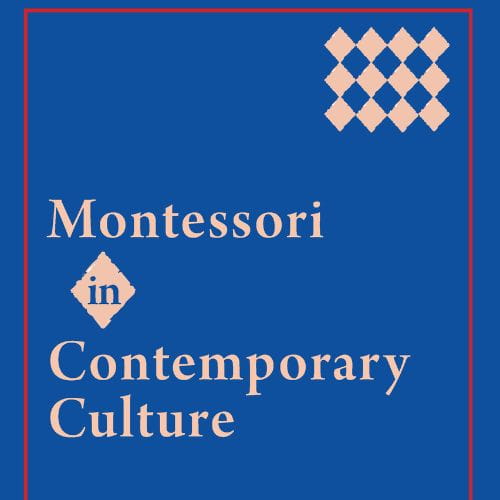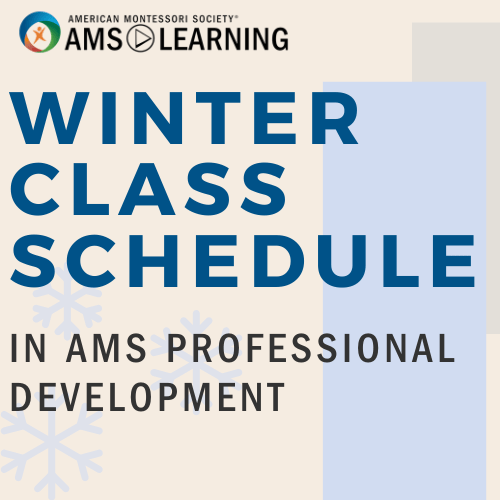Curiosity Lab at AMS Leadership Labposium: Innovation Begins with a Creative Education
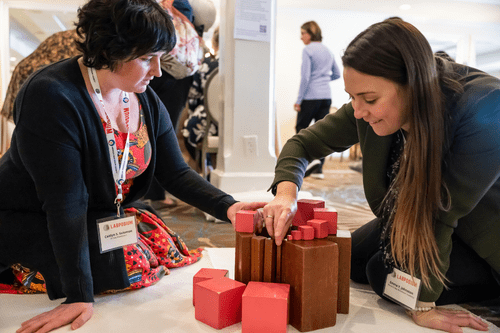
Maria Montessori believed that humans were curious beings by nature. She felt that every person possessed a strong desire to learn and know. This inquisitive thinking is fueled by exploration and investigation that opens the mind to new experiences and new understandings.
It was this type of enlightening endeavor that Rosemary Quaranta and Gabrielle Holt hoped to provide when organizing the Curiosity Lab at the American Montessori Society’s (AMS) recent Leadership Labposium. The Curiosity Lab was an active learning environment designed to offer Montessori leaders the opportunity to “uncover the joy and challenge found through creative experiences.” In Rosemary’s words, it was a place “to be curious” and “for people to come and see materials and experiences in new ways, through a different lens. It was [a place] to explore and investigate and learn a few new ways to connect with Montessori materials.”
Rosemary shares that she was approached by AMS executive director, Munir Shivji, who developed the initial idea for the Curiosity Lab. According to Rosemary, Munir came to the initial meeting with “a list of fun, playful activities that would form community and be a playful reprieve for our attendees.” Inspired by Munir’s ideas, Rosemary then contacted Dr. Patricia Pinciotti, an Early Childhood education professor, who encourages innovation and creativity with her involvement in the CREATE Labs in schools on the east coast. Their conversation supported the blossoming of Montessori activities that were community based.
Attendees of the Labposium were invited to engage in one of fourteen different creative learning endeavors including:
- Bringing nature into the space by creating a design or a word using natural materials such as pine cones, acorns, leaves, sticks, and stones.
- Quilting individually sewn metal inset and circles from the Geometric Cabinet to develop unique designs.
- Creating straight lines through the open-ended experience of joining twist ties together in original ways.
- Crafting art extensions after an experience such as composing a feeling.
- Partaking in the Pipeline Challenge, a community game promoting cooperation as teams work together to design a pipeline for a ball to successfully travel through.
Participants were encouraged to engage in playful learning individually and with others as “they discovered the power of collaborative problem-solving to value new insights and deeper relationships, reflecting Montessori practice through a kaleidoscopic lens that generated a-ha moments of wonder and a sense of well-being and community through creative work.”
Each of these activities allowed participants to explore Montessori concepts and connections such as comparison, observation, patterns, fine motor skills, hand eye coordination, geometry, and biology.
The incorporation of traditional Montessori materials in a few of the experiences was intended to help attendees begin to question the way these materials are viewed and to think critically about the rules that have been established surrounding their use in the classroom. By engaging in these fun, hands-on activities, Rosemary and her colleagues hoped that the Curiosity Lab offered attendees the opportunity to engage in these introspective practices as they worked together to “build community, unity, have fun, and… think outside the box.” After all, innovation begins with a creative education.
Learn More
About the Author
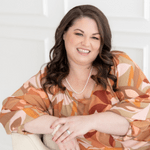
|
Heather White, EdS, is a Montessori coach and consultant, content creator, and educator for adult learners, as well as a moderator and manager for the Montessori at Home (0 – 3 years) Facebook group. Formerly, she was a Montessori teacher, in-home caregiver, Lower Elementary coordinator, and associate head of school. She also has experience as a school psychologist intern. She is AMS-credentialed (Early Childhood, Elementary I) and is a Nationally Certified School Psychologist (NCSP). Contact her at hpratt@stetson.edu. |
Interested in writing a guest post for our blog? Let us know!
The opinions expressed in Montessori Life are those of the authors and do not necessarily represent the position of AMS.

